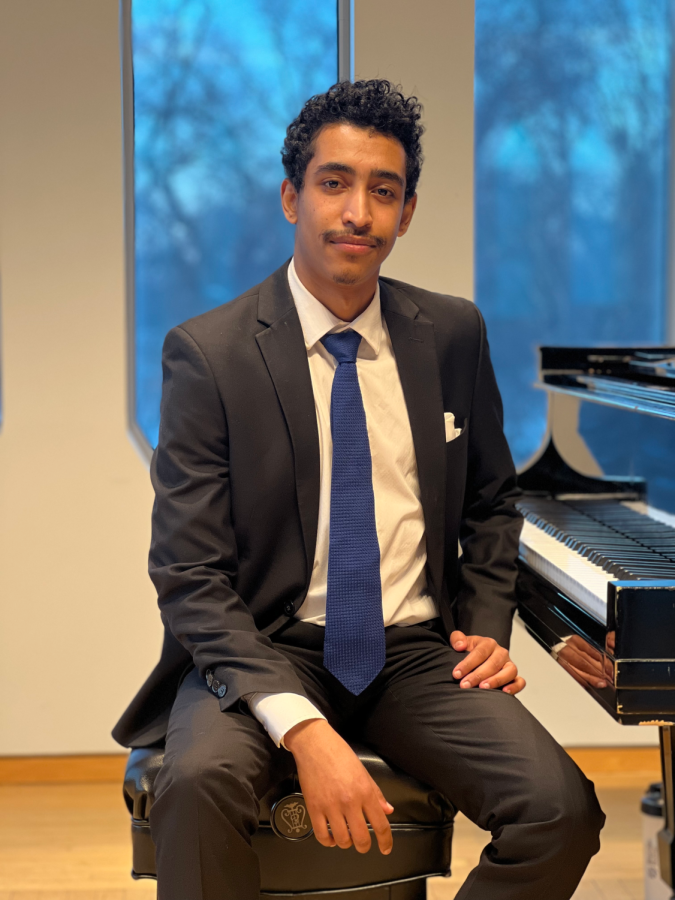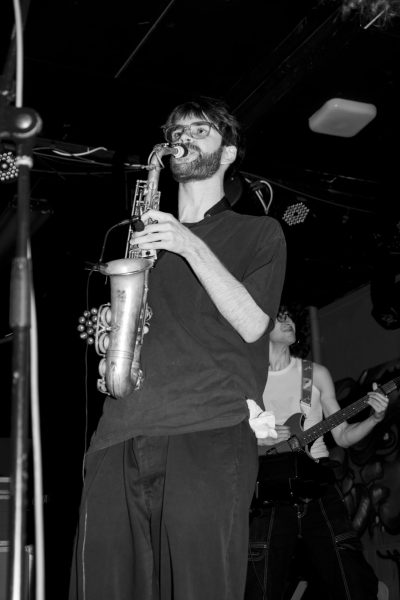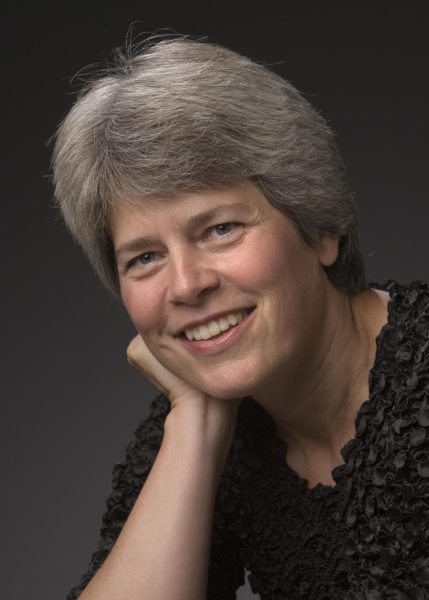Benhur Ghezehey, Eritrean Operatist, Vocalist
Benhur Ghezehey sitting at Piano in Stull Recital Hall.
Benhur Ghezehey is a Conservatory second-year Classical Voice major from Eritrea. He is starring in Oberlin’s production of Domenico Cimarosa’s Il Matrimonio Segreto at Hall Auditorium at 8 p.m. tonight and tomorrow, and 2 p.m. this Sunday.
This interview has been edited for length and clarity.
Could you tell me a little bit about your early life and how you were introduced to classical music? How much formal study did you have as a child?
I came from a family of warriors and athletes mostly, so no one in my family was into music. But as a child, everyone listened to music — my mom would sing lullabies. I would also love listening to traditional Eritrean music of all sorts, from all the different tribes we have. But when I was 4 years old, I watched a Tom and Jerry cartoon where they sang opera. The sound was unique; they were like [in an operatic voice], “Figaro, Figaro, Figaro” — it really captivated me. It made me curious.
Before I came to America, I taught myself to sing by listening to records for three years. I downloaded media sheets from the internet and studied those since there was no music school. Later, when I was 18, myself and a group of young Eritrean musicians, mostly teenagers, gathered and formed this group called Sound of Oasis. We got support from the Eritrean Commission of Culture and we presented concerts to the public, who normally aren’t exposed to classical music played by native Eritreans.
We performed at the Asmara Theatre, which has a particular history. It was built in 1918 by the Italian colonizers. During colonization, they didn’t even allow native Eritreans to wander about its grounds or attend classical music concerts. They maintained a strict apartheid. They halted Eritrean natives from getting an education after about the fourth grade because they feared it would cause the people to revolt. So there is this kind of trauma from colonization, and classical music was the music of the colonizers, especially opera.
Because my family is a family of warriors, and they died to make the country independent against invaders, my singing of opera for them was not acceptable initially because they considered it foreign—something from the colonizers.
Can you talk about how you finally made it to the States?
Eritrea doesn’t have a great relationship with the outside world, and it was not until I got to meet an American pianist, John Ferguson, the executive director of an organization called American Voices, that I could come to the U.S. He came to Eritrea to do a workshop for musicians, and we performed a German lied together, which he posted on Facebook. A teacher from New York invited me to attend a festival in Italy, which was the first time I received formal instruction. In 2019, I got a diplomatic exception to come [to the States] because the Trump administration had banned Eritrean students from studying here. I attended St. Louis University to study academic English and to take private lessons so I could apply to music schools. I became the only international African student in the Conservatory here.
How did your family react when you began seriously pursuing opera?
When I started to do opera, they thought, “Maybe he’s just being influenced by culture.” They thought it wasn’t going to come into fashion, but then something happend.
The whole community embraced the music because of its beauty. And in a way, it started to heal people from trauma; they started to appreciate the music as made by humans instead of by whites or oppressors.
Because they saw performers like me, who look like them, they realized that it’s actually beautiful music. Even though its history is troublesome, the music itself is not corrupt.
There are a lot of younger people now being inspired to attend classical music concerts, which is exciting. We are not at war anymore and now we are in nation building.
You have to build a society not just by economic development but also by culture, and music takes center stage.
Knowing that classical music has sometimes been wielded as a tool for oppression, how do you take it and wield it for something liberating?
It would be a tragedy if we would abandon this music because of how Westerners treated people. The canon has to open up to incorporate all people’s old music. And when you say classical music, if we are really going to go deep into history, how did Europeans get that music? It was from the Moorish empire that introduced instruments to them, and the troubadour culture that happened in Moorish Iberia during the Islamic Golden Age. So if you go deep into history, classical music has been transferred from people to people. It’s very connected. Each people adds to it.





